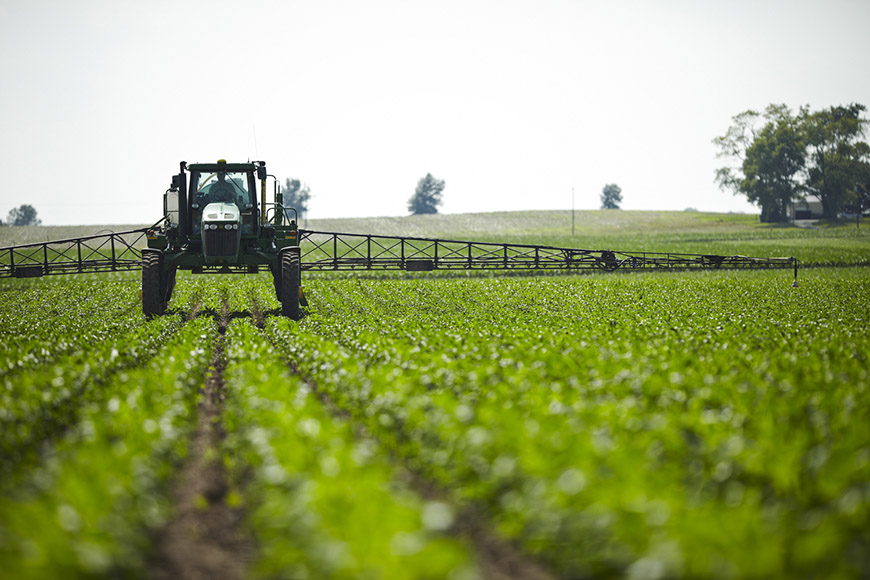4 Tips for Successful Weed Control

Spring means planting. But it also means troublesome weeds will be popping up soon. If you haven’t done so already, talk with your local trusted advisor about your weed control strategy for this season. Here are a few tips to keep in mind as you formulate a plan to tackle weeds throughout their growth cycles.
1. Look at last year.
Evaluate the performance of your 2022 weed control strategy to see what worked well and what you’d like to change. Identify last year’s most prevalent weeds and create your plan for controlling them first. Your local agronomist can equip you with resources — for example, university research and Answer Plot® data — that can help inform good agronomic and economic decisions for your fields.
2. Start with a clean field at planting.
Use tillage or a burndown herbicide application to get crops off to a weed-free start. An effective herbicide strategy consists of using multiple modes of action, correct herbicide rates and timely postemergence applications.
I recommend using three effective modes of action for any weed management program. This strategy consists of residuals and postemergence herbicides. The postemergence herbicides should be applied in a timely manner and offer another residual to protect against later emerging weeds such as waterhemp and Palmer amaranth. This can be an effective strategy for both traditional tillage and no-till systems. Be sure to check herbicide labels for plant growth restrictions on postemergence herbicides.
3. Choose the right adjuvant.
Don’t risk your crop protection investments to low-quality adjuvants. Weed competition reduces your return on investment, so choosing the right adjuvant for whatever herbicide chemistry you use is key. Adjuvants can help improve herbicide performance in the spray tank by reducing herbicide tie-up by harmful cations, in the air by reducing drift and improving spray deposition, and on the leaf by improving herbicide uptake.
Our performance lineup is up for the challenge, providing reliable effectiveness to help you tackle the season ahead:
-
Class Act® NG® adjuvant is an AMS-based water conditioner that contains non-ionic surfactant and CornSorb® technology to help promote fast, aggressive weed control when mixed with glyphosate- and glufosinate-based herbicides.
-
InterLock® adjuvant works effectively with a range of herbicides to help improve spray deposition and manage drift.
-
Destiny® HC oil adjuvant optimizes the performance of most post-emergence herbicides, using CornSorb technology for improved absorption and uptake.
4. Know your weed emergence schedule.
For example, early emerging weeds, such as marestail, common ragweed and giant ragweed, are first to appear in the spring. In no-till systems, an early burndown application should be considered to prevent early emerging weeds from competing with the newly established crop. Waterhemp and Palmer amaranth take a little longer to develop, from early spring to peak emergence in June and early July, so make sure to use an effective preemergence herbicide as well as a layered residual herbicide postemergence for strategic weed management.
Large weeds at the time of application can result in limited options and higher costs for you. It pays to be proactive and consistent to achieve season-long weed control. Contact your local trusted advisor to get an early start on successful weed control.
All photos are either the property of WinField United or used with permission.
© 2023 WinField United. Important: Before use always read and follow label instructions. Crop performance is dependent on several factors many of which are beyond the control of WinField United, including without limitation, soil type, pest pressures, agronomic practices and weather conditions. Growers are encouraged to consider data from multiple locations, over multiple years and to be mindful of how such agronomic conditions could impact results. Answer Plot, InterLock, Class Act, NG, Destiny, CornSorb and WinField are trademarks of WinField United. All other trademarks are the property of their respective owners.

